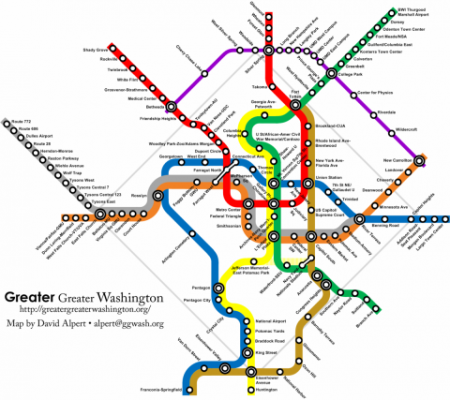Privatizing traditionally state-owned services such as transportation is a controversial strategy promoted by some to generate tax revenue and boost performance; skeptics of the policy, however, fear how private companies will exploit access to a necessary service and hike prices. This summer, I took a class titled Privatization, Nationalization and Public-Private-Partnership at GW’s School of Business, to consider the issue of privatizing transportation more analytically, less politically, and with more nuance. Ultimately, I wanted to provide a more informed response if someone asked me again about privatizing DC’s struggling metro system.
During the course, I studied the Internet industry in OECD countries to learn how different degrees of government ownership of Internet companies can impact the speed, cost, and penetration rate (accessibility) of Internet within their respective countries. See graph for a preliminary relationship between speed and the ownership index.
Note: ownership index of 0 means government has no direct or indirect ownership of the three largest telecom companies in the country; conversely, ownership index of 6 indicates government has complete ownership of the telecom companies.
The graph does not tell us much. For example, Luxembourg’s Internet companies are completely state-owned, yet it enjoyed similar speed as Israel and Denmark whose governments are completely hands-off from the Internet companies. The illusory relationship between the two demands a regression analysis that could hold income, population, and other geographical characteristics constant so we can better understand the marginal impact that ownership has on speed when all else is the same. The regression result finds that on average, in the 34 OECD countries I studied, an increase of government ownership of 1 index point, which translates into about a 10% increase of stock holdings of internet companies by a government, is associated with a decline of 1% to 6 % of internet speed. A company going from completely public to private could increase their Internet speed by more than 20%! While speed increases, my data does not suggest that private ownership will have any impact on the price and the penetration rate of Internet.
To conclude, I will still be cautious at privatization but there’s evidence that it does make Internet faster in OECD countries. And if you will entertain the idea that building an Internet network and running it is not completely different from building and running the metro, then you might just agree that privatization of DC Metro might make your commute a bit faster! If you wish to debate with me on this matter further, you might just have to come to Foggy Bottom—using the ‘slow’ metro of course—to visit me on campus or at any upcoming alumni events! See you then.



